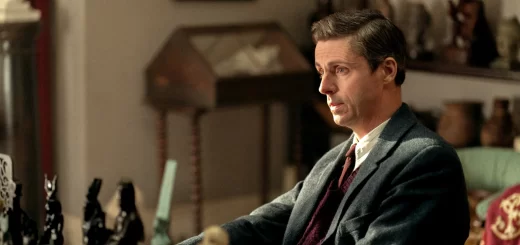The BFG: Flow Gently, by Scott Nye
As plots for children’s films become faster and busier, it can be easy to forget how simple they began; how much Pinocchio or Bambi de-emphasize “threats” and “hero’s journeys”, and how rarely “stakes” came into play. Mostly they’re movies about making friends, adjusting to a world much larger than the one you knew, falling into one or two dangerous situations, and learning who you really are apart from the circumstances of your birth and family. In that sense, and many others, Steven Spielberg’s The BFG follows in the grand tradition of Walt Disney. It’s a film steeped in wonder, curiosity, and good will, assuming the best of everyone and not overly worrying about those who seek to do us harm. Very little happens, but it’s as fresh, original, and enchanting a children’s film as I’ve seen in years.
Sophie (Ruby Barnhill) is an orphan living in London who’s more than content to fill her nights hiding a flashlight and book under the covers, dodging her caretakers and finding independence where she can. But when she spots a man of unusual size (Mark Rylance), he has no choice but to snatch her up in the night and whisk her away to Giant Country. Can’t have word getting out about them, after all. There’s a period of adjustment, but they quickly come to love and trust one another. There are some other giants who will eat her right up at a moment’s notice, but he means her well. He says he’s sometimes called Big Friendly Giant, which she shortens to BFG. He makes dreams, so they go off to a hilltop to harvest them. And quickly we can surmise that this is one low-tempo visual effects extravaganza. Nearly every shot has an animated component, but – as one would expect from a filmmaker and company with the resources of Spielberg and Disney – the reality is totally convincing, in its own heightened sort of way. Much as I don’t question The Wizard of Oz or Edward Scissorhands or Cocteau’s Beauty at the Beast, the world of The BFG exists because we allow it, even with the occasional seam.
And what a gentle, warm world it is. This might be the most effectively Spielberg’s yet worked in comedy, with even the most base jokes – there’s much ado about farting, you see – creating a genial, humorous spirit. The feeling is one of being a child stepping out into the world and finding it more wondrous than you could possibly imagine. It’s like moving to a new town and discovering a neighbor who completely understands you. Rylance’s motion-capture performance is absolutely paramount to this effect. As fine and – for those of us outside the theatre scene – revelatory as his work in Bridge of Spies proved, the task before him here is much, you’ll pardon me, larger. The BFG speaks in a sort of undereducated manner, combining and contorting common words (“human beings” are “beans”, “hippopotamus” becomes “hippodumpling”, and so on); his speech falls somewhere between a sort of beat poetry and an old man trying to keep up with the common lingo. Rylance’s voice aches and rejoices at each word. The BFG is lucky to be alive amidst is more violent brethren, but he’s also terribly lonely. The animators capture an indelible twinkle in his eyes, and give the BFG a reactive physicality, especially in his finely-tuned ears, the combination of the two making him seem both very wise and very curious at once. He says he’s as old as the earth is, and we believe it, but that also means he’s as young as the earth will live to be.
Screenwriter Melissa Mathison (E.T. the Extra-Terrestrial) hews very closely to the beats of Roald Dahl’s novel, upon which is is based, smartly isolating the rambling, inventive story’s more incisive portions, and diving further into the BFG’s backstory without fully divesting him of certain mystery. Most importantly, she and Spielberg have considerably changed the ending of the novel, this one more daring, poignant, and reflective of the coming-of-age themes in which they find so much interest. They carry the casual pace masterfully, never allowing for a dull moment and refusing to overly their placid story. I read recently a remark that while most directors try to bend the medium to their will, Spielberg is content to let the cinema reach its natural flow (at least as the American understanding of that goes), and I can’t think of a better example than this. Spielberg’s considerably-busier The Adventures of Tintin proved great training ground for utilizing a camera that has no limits, but here he uses that asset to heighten empathy and humanity, rather than bury story. The BFG is a poignant, casually bold film, unconcerned with what the market research suggests children need and instead giving them what they have always wanted – loving and clever characters, a beautiful world, and gentle reassurance. Such virtues should be of interest to more than a few adults, I hope.


























